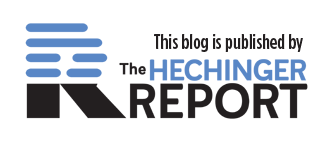In a Wired blog, “Inside the Educational Data Revolution,” David Stewart, CEO of Tembo, laments how in the largest US school systems, “millions of dollars are being spent on interim assessment systems, intended to track student performance throughout the year and adapt teaching strategies in advance of the high-stakes year-end tests. The problem is that there’s almost zero correlation between Common Core skills scores on the interim test and the end-of-year test. The difficulty levels are different, and the magnitudes of those discrepancies even differ among subject areas. Just because a student does well on a mid-year test doesn’t mean she will do well at the end of the year, making it impossible to track improvement. ”
I keep wishing that ed data geeks would use their data analytics to figure out which ways of teaching are more effective. But lower down in this blog post, there’s an explanation of why this may also be fool hardy.
“Steve Cartwright, the company’s Director of Analytics, “we really need to bring the individuals that are doing the teaching along for the ride.” Because, even to the data geeks at Tembo, it’s still ultimately about the classroom, where the rubber hits the road. “There are a lot of smart people all over the country trying to figure out the perfect lesson, the perfect way of instructing, and then replicating it for all students,” explains Stewart. But it’s more personal than that, and education is still struggling with escaping the one-size-fits-all approach. Given the widely differing starting points of each individual – learning style, home environment, motivation level – “you’re never going to solve it with an algorithm.”
Still, if we can do clinical studies for medicine in which each body processes a pill differently, why can’t we do it for teaching algebra?



